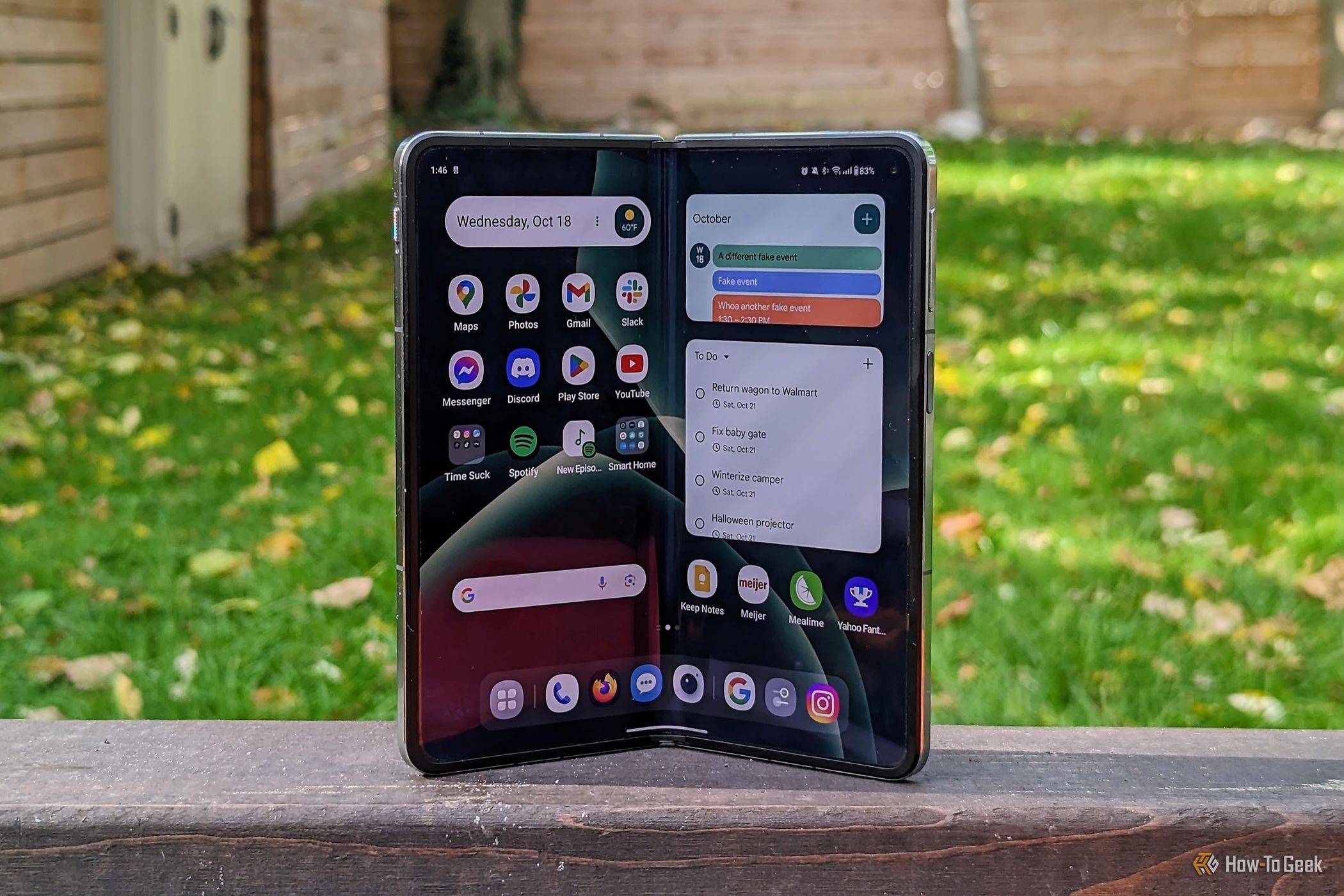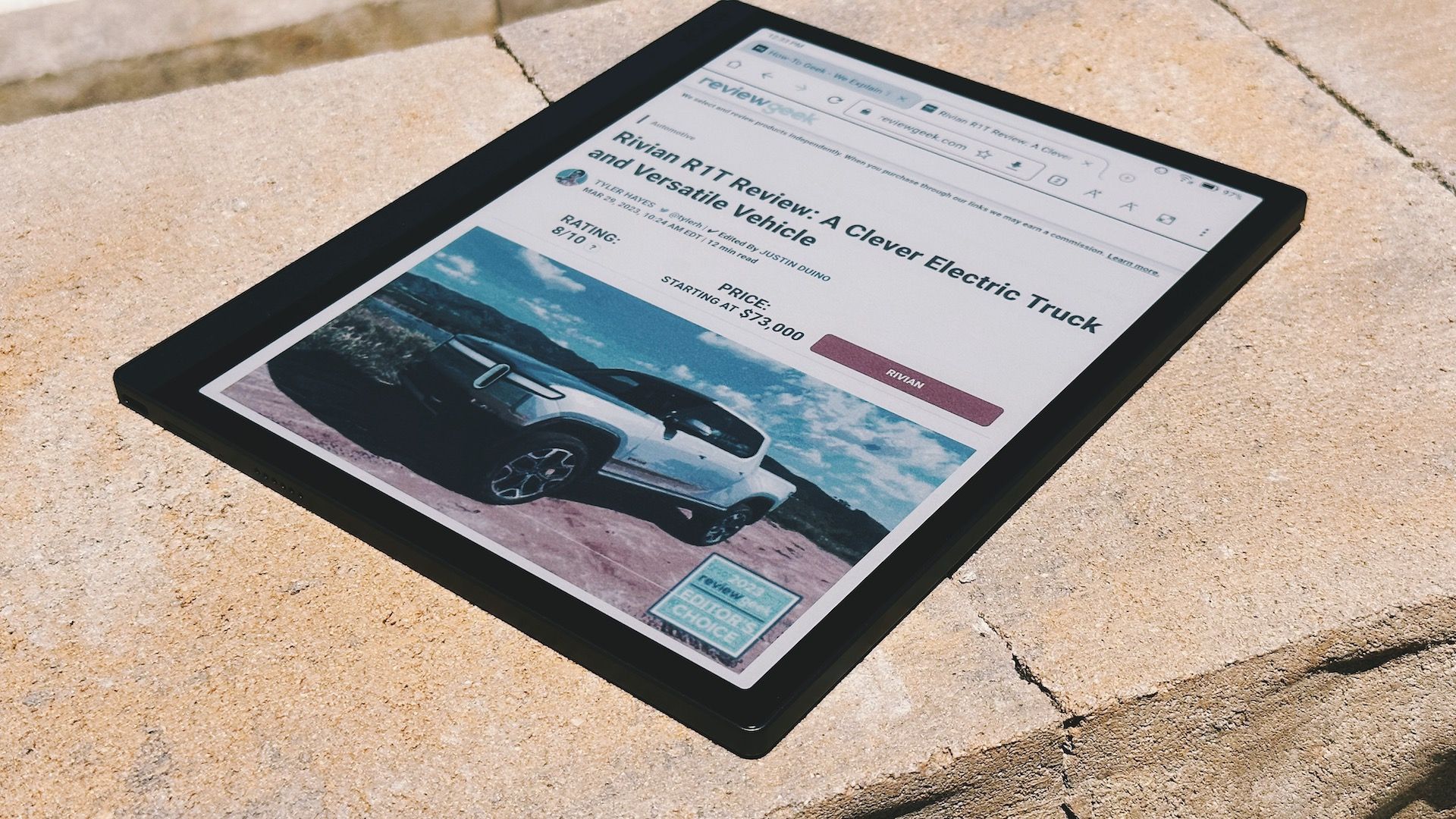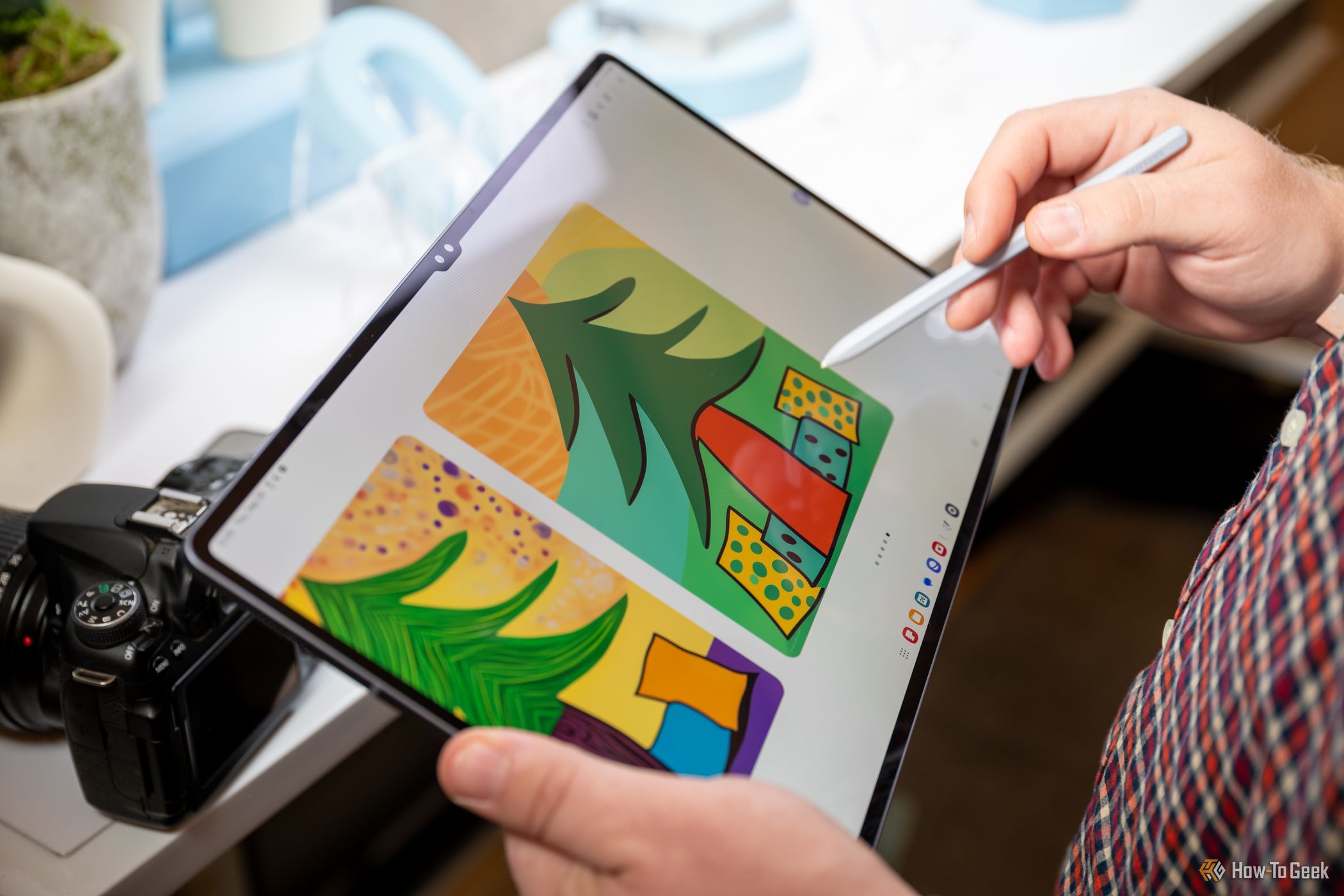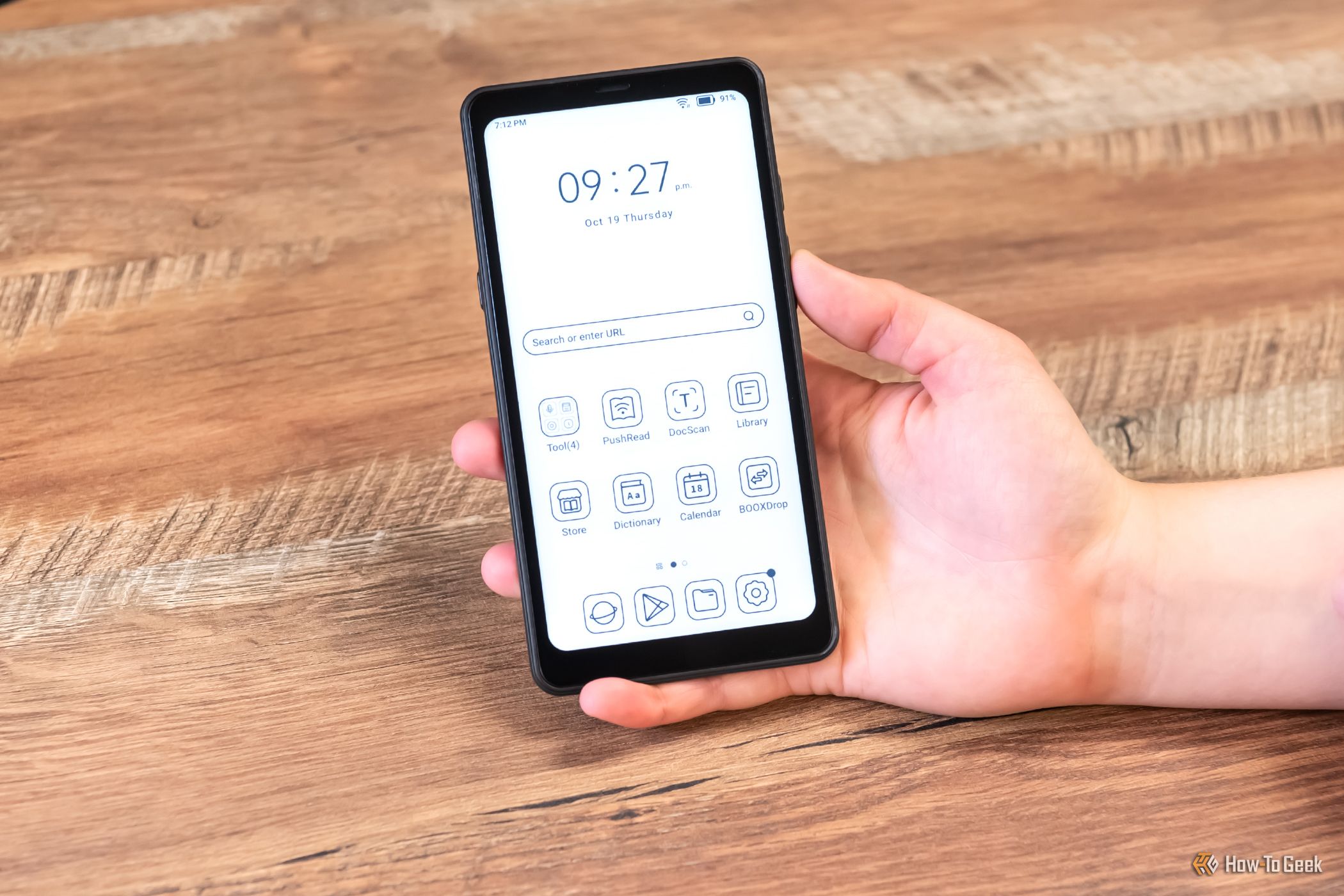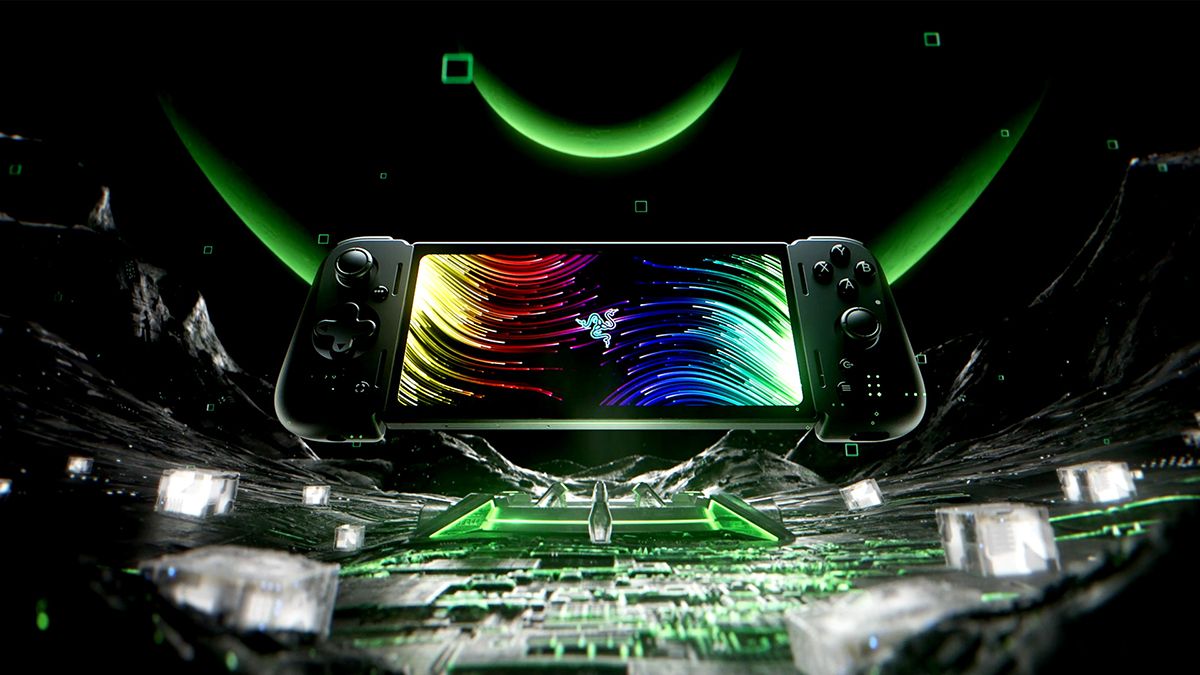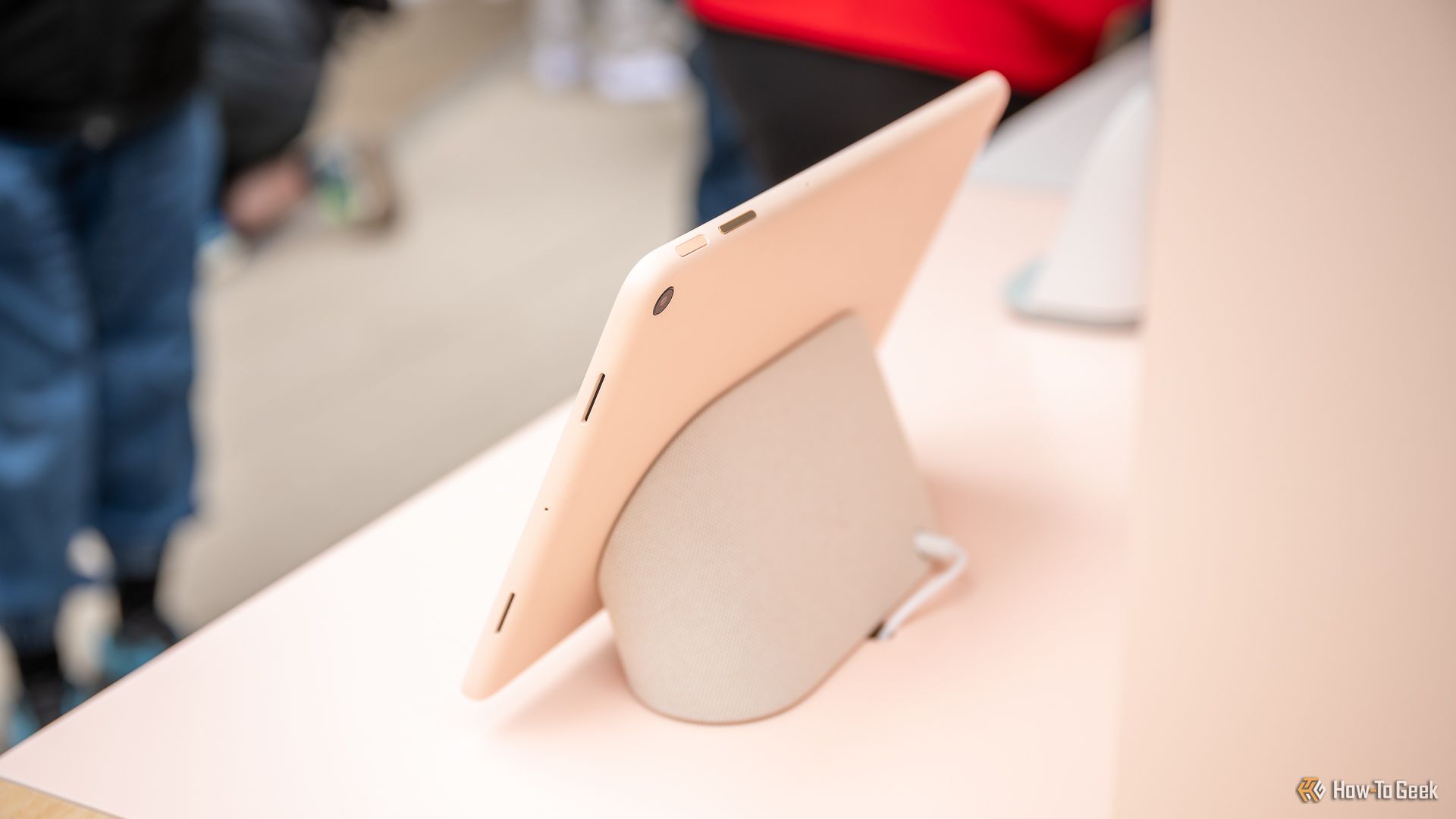An iPad today is a thinner, more powerful version of the iPad of 10 years ago. In the Android world, you have the fun novelty of “what will they think of next?” That, more than any other reason, is why I continue buying them instead of iPads. Let’s take a moment to appreciate the diversity among Android tablets out there.
Tablets That Fold Into Phones
Let’s start with my personal favorite. I’m writing this on a Galaxy Z Fold 5. I love this device more than any consumer electronic gadget in recent memory. As a phone, it’s shorter and more narrow than most modern slab phones. Yet once open, it has a screen larger than my old Nexus 7. Thanks to Samsung’s myriad multitasking features, I am surprised just how much computing I can do just from this screen.
How much, exactly? All of it. I replaced my PC with a folding phone. When I need a larger display, I connect my phone to a lapdock or an external monitor and use the Samsung DeX desktop interface. My foldable pocket tablet is a true 3-in-1 device that you can’t replicate with an iPhone or an iPad.
If you don’t have a need for DeX, and you aren’t as in love with a stylus as I am, then you can go for a larger book-style foldable like the OnePlus Open or the Google Pixel Pro Fold. As Micah Woods emphasized in his Galaxy Z Fold 6 unboxing video, unlike the small tablets of yesteryear, these book-style foldable phones are true phablets.
Tablets With E-Ink Screens
E-ink screens feel to me a bit like magic. How does something that looks like paper behave like a screen? It’s not a vibe that works for everyone, but I’m among the handful of people who love the ideal of an e-ink laptop or desktop monitor that allows me to do my computing without blasting light into my eyes.
E-ink laptops aren’t yet a thing, and e-ink monitors are painfully expensive. Thankfully, e-ink has expanded past the limited world of eReaders and even single-purpose note-taking devices like the ReMarkable tablet. You can now get a fully functional Android tablet with Play Store access from companies like Boox.
I’ve owned both the monochrome and color versions of the Boox Tab Ultra. Boox markets these tablets as “ePaper tablet PCs,” and that’s how I used them. I wrote articles, communicated with colleagues, uploaded photos, and managed my personal finances from these devices (which I used in conjunction with a Light Phone 2). When I was done with work, I read ebooks and comics.
There isn’t enough demand for an e-ink display on a tablet for Apple to stick one on an iPad, but in the Android world, where there’s a will, there’s a way.
Tablets That Are Way Too Big (or Small)
With iPads, Apple alone dictates the available sizes. If you want something big, you can go up to 12.9 inches by getting an iPad Pro. Want something small? You can get down to 8.3 inches with an iPad Mini.
If the iPad Pro seems unwieldy, on Android, you can go even bigger. The Samsung Galaxy S10 Ultra has a whopping 14.6-inch display. When connected to an optional keyboard, it effectively becomes a laptop, and not a small one at that.
Want to go smaller? At 6.13 inches, the Boox Palma is the size of a smartphone.
Since the Palma lacks cellular radios, that makes it a tablet, right? Sure, with an e-ink screen, Boox markets it as a tiny eReader, but with full Play Store access like Boox’s other devices, you can use this thing however you want.
Tablets That Double As Gaming Handhelds
The Razer Edge is a rather unconventional approach to creating a gaming handheld. Unlike the Steam Deck or most Windows handheld PCs, the Edge is not a single unit. Rather, it’s a tablet not much larger than a Samsung Galaxy S Ultra that happens to come with a Razer Kishi V2 controller. In fact, if you already have a high-end phone, you can save yourself a bunch of money by buying just the controller and skipping the Edge.
For that reason, the Edge wasn’t an easy recommendation at launch. Its price placed it right in line with gaming handhelds with more power and larger libraries. The thing is, the Edge isn’t particularly overpriced when you consider you’re getting a 144Hz 2400 x 1080 AMOLED display paired with a capable Snapdragon G3x Gen 1 chip.
Now that you can grab one used or just at a reduced price, it’s an easier buy for anyone into Android gaming. You can hand it to a family member or use it as a way to avoid draining your phone’s battery with your gaming habit.
Tablets That Function As Smart Home Hubs
The Google Pixel Tablet, as the name suggests, is the tablet wing of the Pixel line. Unlike Pixel phones, it isn’t high-end. It’s not exactly cheap either, at least not by Android tablet standards. It’s decidedly average. It’s fine.
What makes the Pixel Tablet interesting isn’t the tablet itself but the charging dock that you can buy with it. This dock serves as a speaker that pumps out better audio than the tablet itself. It also props the tablet up at an angle that is great for casual viewing. It can serve as a fancy clock, weather station, or calendar. It can also serve as your smartphone hub. Treat it like a smart speaker with a screen, one that also doubles as a way to binge Netflix when you’re ready to chill.
Is the iPad the best all-around tablet for the majority of people? Sure, probably. I won’t argue against that. Still, it’s hard for me to see the use of one in my life. Despite packing more power than a large proportion of PCs, the iPad’s software limits what you can do with it. Without a DeX-like feature, it’s hard to use an iPad as a PC. Like most tablets, it requires a bag to carry around. I can also get better gaming devices for the price.
Is an Android tablet better? That’s not the question I’m interested in. Rather, I like that, every few years, another one comes along that does something that feels genuinely new.


